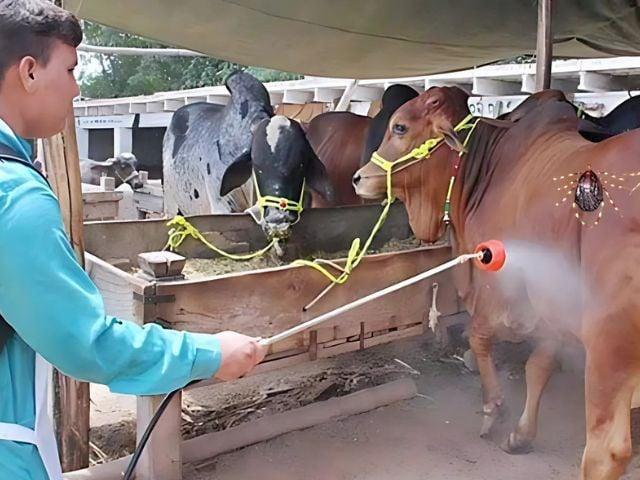The National Institute of Health of Pakistan (NIH) has issued public health notices on the crime-gain hemorrhagic fever (CCHF) and the increase in the risks of thermal waves and insolation as the climate related challenges intensify throughout the country.
The advice urges medical care institutions and the relevant authorities to implement appropriate and appropriate measures to prevent disease outbreaks during the summer months.
CCHF, a potentially fatal viral disease, is caused by nirovirus and is commonly transmitted to humans through infected tick sting, particularly those that are found in cattle as goats, sheep and rabbits.
The virus can also be transmitted through blood contact or tissues of infected animals, especially during or after sacrifice.
The transmission of humans to humans is also possible, particularly in clinical or domestic environments. According to NIH data, 61 cases of CCHF were reported in Pakistan in 2024.
The notice recommends wearing light color clothes, which makes ticks more visible, said Express News.
Citizens are also advised to avoid visiting areas with heavy tick infestations and eliminate any visible tick of the skin or clothing using safe techniques.
In a separate note, the NIH warned about the growing health risks raised by heat waves and insolation, since Pakistan faces intensified climatic impacts, including the increase in temperatures due to global warming. The notice highlights that it is likely that diseases and deaths related to the heat wave will increase in the coming years.
To avoid heat stroke, NIH recommends avoiding direct sunlight, staying hydrated and taking other precautionary measures to mitigate the effects of extreme heat.
Health experts warn that the frequency and severity of weather -related diseases are increasing and emphasizing the need for public awareness and preparation before the summer season.
Previously, the Department of Meteorology of Pakistan (PMD) issued a heat wave alert, predicting unusually high temperatures in much of the province of Sindh until April 18.
Under current conditions, the maximum daytime temperatures in districts such as Dadu, Shaheed Benazirabad, Jacobabad, Larkana and Sukkur are expected to remain from 6 to 8 ° C above normal, said Express News.
Similarly, in the districts of Badin, Tharparkar, Uumerkot and Hyderabad, temperatures can exceed normal ranges from 4 to 6 ° C, according to the department.




